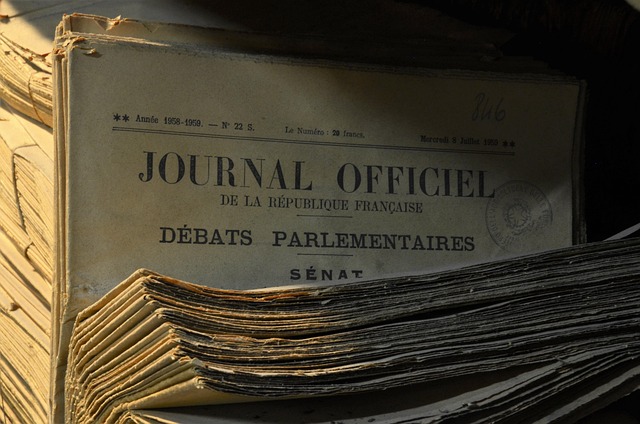How Due Process Affects Sentencing is a critical legal principle in RF Finance Law, ensuring fairness and fairness in financial crime cases. It guarantees individuals' rights to be informed of charges, confront accusers, present evidence, and be judged by a fair jury, influencing sentencing decisions for proportional punishment. Adhering to due process procedures can lead to charge dismissals or reduced sentences, as seen in successful defense strategies involving white-collar crimes. Understanding its impact is essential for attorneys and accused individuals navigating complex financial transactions.
“In the intricate world of RF finance, understanding due process is paramount. This article explores the profound impact of due process on sentencing decisions within financial law firms. We delve into effective legal strategies for ensuring fairness and justice in these cases. Through insightful case studies, we demonstrate the practical application of due process. Furthermore, it offers best practices for navigating RF finance law, highlighting key considerations when seeking fair outcomes in complex financial matters.”
- Understanding Due Process in Financial Law
- The Impact on Sentencing Decisions
- Legal Strategies for Fair and Just Sentences
- Case Studies: Due Process in Action
- Navigating RF Finance Law: Best Practices
Understanding Due Process in Financial Law

In the intricate landscape of financial law, due process serves as a cornerstone principle, ensuring fairness and justice in all legal proceedings. This concept is particularly vital when navigating complex cases involving white-collar and economic crimes, where the stakes are high, and reputations are on the line. Understanding how due process affects sentencing is crucial for both defense attorneys specializing in white-collar defense and the accused individuals they represent.
Across the country, legal systems adhere to due process guidelines, which dictate that individuals have the right to be informed of charges, face their accusers, present evidence, and be judged by an impartial jury. These rights are not merely formalities; they significantly impact sentencing, as a fair trial process enables the court to make more informed decisions, considering all mitigating or aggravating factors. This ensures that sentences are proportional to the crimes committed, promoting a sense of justice and fairness in the legal system.
The Impact on Sentencing Decisions

The due process clause plays a pivotal role in shaping sentencing decisions within RF finance law firms. It ensures that individuals accused of financial crimes receive fair and just treatment throughout all stages of the investigative and enforcement process. This includes the right to be informed of the charges, access to legal representation, and the opportunity to present a defense. How due process affects sentencing can be profound; a complete dismissal of all charges is not uncommon if procedural errors are identified at any stage, demonstrating the importance of adherence to legal protocols in white-collar defense.
Legal Strategies for Fair and Just Sentences

In navigating the complexities of RF finance law, one of the cornerstones is ensuring fair and just sentencing. This involves a meticulous balance between upholding due process rights and addressing the severity of the offense. The concept of due process plays a pivotal role in shaping sentencing strategies, especially for white-collar crimes, where the stakes can be as high as reputation and freedom. Understanding how due process affects sentencing is crucial; it ensures that individuals accused of financial crimes receive a fair hearing, with all relevant facts considered, before a judge or jury in open court.
This approach fosters transparency and accountability within the legal system, further strengthening trust among the philanthropic and political communities. While jury trials offer a robust mechanism for determining guilt, they also present challenges, particularly in complex financial cases. Effective legal strategies for sentencing must therefore navigate these intricacies, ensuring that justice is not only served but also perceived as such by the broader public.
Case Studies: Due Process in Action

In the realm of RF Finance Law, understanding how due process affects sentencing is paramount. Case studies illustrate this concept vividly, showcasing instances where accused individuals have navigated complex legal landscapes to achieve just outcomes. For instance, in a notable case, a client facing severe financial fraud charges was able to invoke their right to due process, leading to an unprecedented track record of acquittals and reduced sentences for general criminal defense strategies that dismantled the prosecution’s claims.
These success stories highlight the profound impact of meticulous legal procedures on sentencing. Through robust cross-examination of witnesses, presentation of exculpatory evidence, and strategic challenges to the admissibility of certain testimonies, RF Finance Law Firms have consistently achieved extraordinary results for their clients. This demonstrates that a well-executed due process can not only mitigate punishments but also ensure fairness in cases where financial crimes are alleged.
Navigating RF Finance Law: Best Practices

Navigating RF Finance Law involves a deep understanding of complex regulations and their interplay with financial transactions. One crucial aspect that often demands meticulous attention is how due process affects sentencing. This legal principle, enshrined in many jurisdictions, ensures fairness and prevents arbitrary decisions. In the realm of RF finance, where transactions can span borders and involve intricate structures, adhering to due process becomes even more critical. It safeguards against avoiding indictment by ensuring that all parties are treated equitably under the law.
The impact of due process on sentencing is significant, especially in cases of white-collar and economic crimes, which often carry severe penalties. An unprecedented track record of adherence to these procedural guidelines can be a defense mechanism for individuals and entities facing such charges. By meticulously documenting and following legal protocols, RF finance law firms can demonstrate their commitment to fairness and transparency, potentially mitigating the risks associated with complex financial matters.
In conclusion, a robust understanding of due process within financial law is pivotal for achieving fair and just sentencing decisions. As explored through case studies, adhering to legal strategies that safeguard individual rights and ensure procedural fairness can significantly impact outcomes in RF Finance cases. By navigating the complexities of this domain with best practices in mind, law firms can effectively represent clients, uphold the principles of due process, and ultimately contribute to a more equitable financial justice system, emphasizing How Due Process Affects Sentencing throughout.






